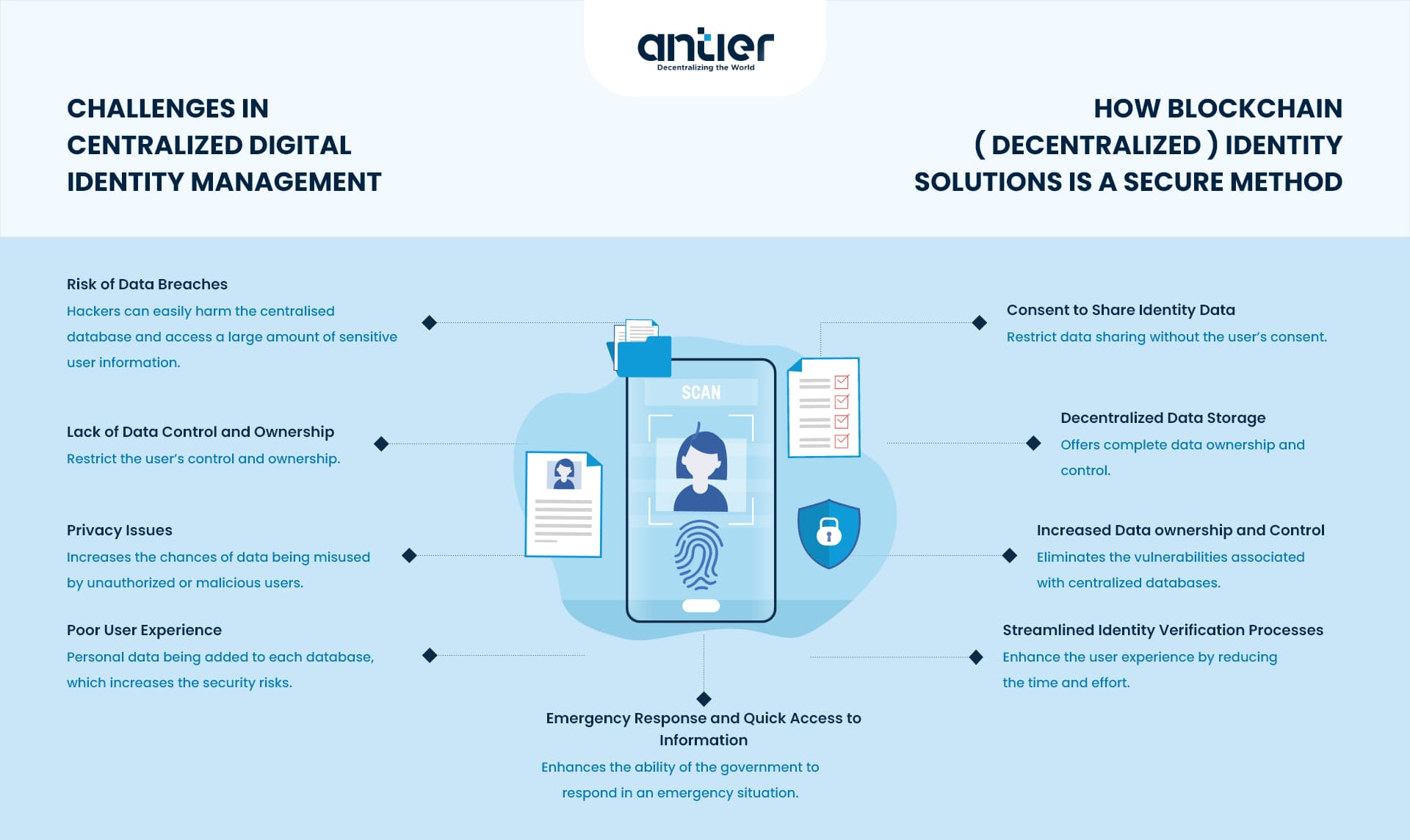Solar Innovations and Trends
Your source for the latest in solar technology and energy solutions.
Betting on Yourself: How Decentralized Identity Can Change the Game
Discover how decentralized identity empowers you to bet on yourself and transform your future in this game-changing blog post!
Understanding Decentralized Identity: A Game Changer for Personal Empowerment
Decentralized identity represents a transformative shift in how individuals manage and control their personal information online. Unlike traditional identity systems that rely on a central authority to store and verify data, decentralized identity empowers users to own their identities without intermediary interference. This is achieved through blockchain technology, enabling individuals to create, manage, and share their credentials securely. As a result, it mitigates the risk of identity theft and enhances privacy, allowing users to decide who can access their information and when, fostering a greater sense of personal autonomy in the digital landscape.
Moreover, decentralized identity can significantly streamline online interactions. The use of self-sovereign identities (SSI) can eliminate the need for repetitive verification processes, leading to smoother transactions across various platforms, whether in e-commerce, social networking, or service subscriptions. As users become more aware of the benefits of managing their own digital identities, this technology is poised to become a game changer for personal empowerment. It echoes the growing demand for privacy and security in an increasingly interconnected world, offering a viable path toward a more equitable digital society.

Counter-Strike is a highly popular first-person shooter game that pits two teams against each other: terrorists and counter-terrorists. Players can engage in a variety of game modes, each requiring skill, strategy, and teamwork to achieve victory. For those interested in enhancing their gaming experience, be sure to check out the bc.game promo code for exciting bonuses and rewards.
The Future of Betting on Yourself: How Decentralized Identity Transforms Trust
The landscape of personal accountability and self-investment is undergoing a seismic shift with the emergence of decentralized identity systems. Unlike traditional identity frameworks that rely on centralized authorities, decentralized identity enables individuals to own and manage their identity data securely and transparently. This fundamental change cultivates a new level of trust between individuals and the platforms they engage with, allowing them to make informed decisions and 'bet on themselves' in ways previously unimaginable. As self-sovereign identity solutions gain traction, users can confidently navigate the digital space, reducing the risk of fraud and identity theft while forging stronger connections with peers and institutions alike.
Moreover, the transformation brought by decentralized identity extends beyond mere security; it paves the way for enhanced opportunities for personal and professional growth. By leveraging verified credentials and reputation systems, individuals can showcase their skills and experiences to potential employers or collaborators without the need for intermediaries. This newfound autonomy encourages individuals to take calculated risks, invest in their abilities, and promote a culture of trust that benefits the entire ecosystem. As we embrace the future of betting on ourselves, the impact of decentralized identity will likely redefine how we perceive trust and accountability in our interconnected world.
Can Decentralized Identity Revolutionize Personal Finance and Empower Individuals?
The concept of decentralized identity (DID) is gradually gaining traction in the digital landscape, and its implications for personal finance can be transformative. By leveraging blockchain technology, decentralized identity provides individuals with greater control over their personal information, allowing them to manage their digital identities without relying on centralized institutions. This shift not only enhances privacy and security but also streamlines financial transactions. As people gain the ability to verify their identities digitally, they can more easily access essential financial services, such as loans and credit, thus reducing dependency on traditional banking systems.
In this new paradigm, individuals are empowered to take charge of their financial futures by utilizing their decentralized identities to foster trust and transparency in financial interactions. Imagine a world where a simple cryptographic proof of identity unlocks opportunities for microloans or instant access to savings accounts, without the cumbersome processes dictated by intermediaries. This democratization of personal finance through DID could also significantly lower costs associated with identity verification, making financial services more accessible to underserved populations. As we explore the potential of decentralized identity, one question remains: can this innovative approach truly revolutionize personal finance and create a more equitable financial ecosystem?